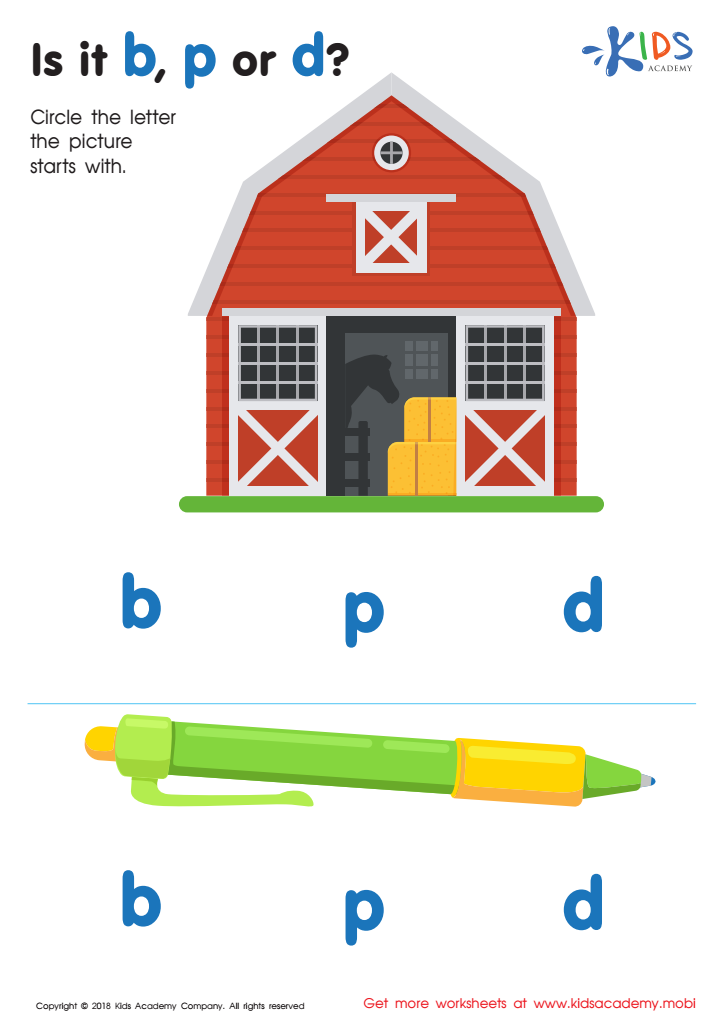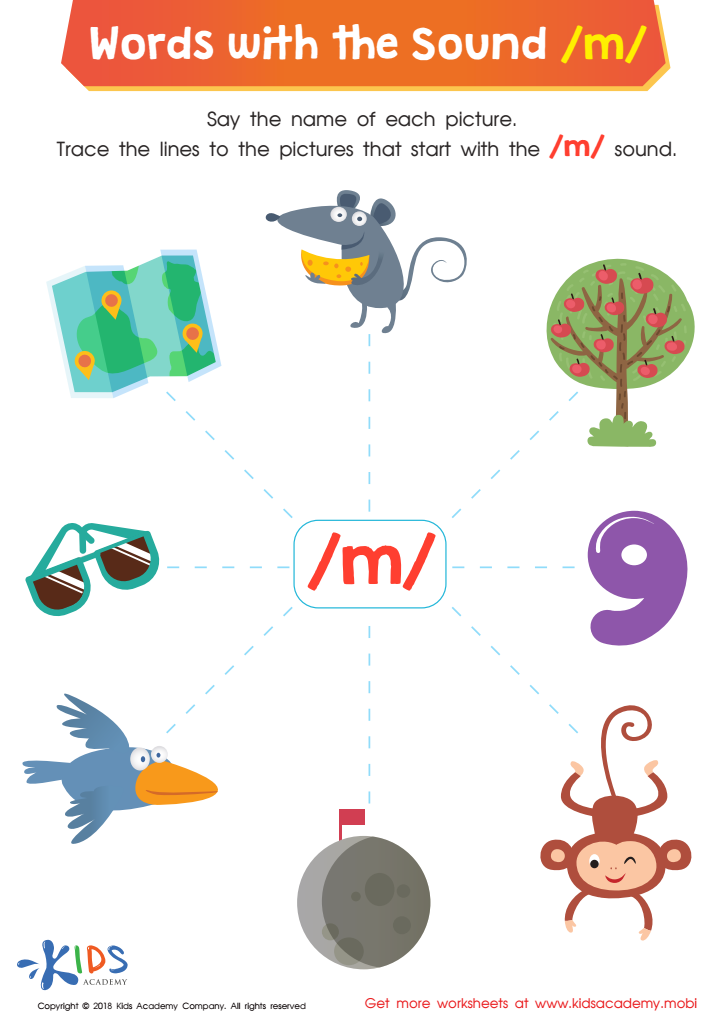Phonics practice Beginning Sounds Worksheets for Ages 3-6
5 filtered results
-
From - To
Enhance early literacy skills with our Phonics Practice Beginning Sounds Worksheets designed for children aged 3-6. These engaging resources help young learners distinguish and identify the initial sounds of words, laying a solid foundation for reading success. Each worksheet features vibrant illustrations and interactive activities tailored to captivate young minds, making phonics fun and approachable. Our carefully crafted exercises promote phonemic awareness, boost vocabulary, and encourage letter recognition. Ideal for both classroom and at-home use, these worksheets provide an excellent way for children to practice and reinforce their understanding of beginning sounds in a playful manner. Start your child’s reading journey today!


Twin Onset Worksheet


Is it b, p or d? Worksheet


Words with sound p Reading Worksheet


Words with sound f Reading Worksheet


Words with Sound M Reading Worksheet
Phonics practice, particularly focusing on beginning sounds, is crucial for children aged 3-6 as it lays the foundations for reading and language development. During these formative years, children are developing essential listening and speaking skills, and beginning sounds help them connect letters to their sounds through playful interaction.
Understanding sounds in words enables children to decode words, paving the way for fluent reading. Beginning sounds facilitate phonemic awareness, which is vital for spelling and writing. When parents or teachers engage children in activities centered around beginning sounds—such as rhyming games, sound recognition, and letter-sound correspondence—they enhance cognitive development, improve oral language skills, and foster an interest in literacy.
Moreover, phonics practice supports early literacy achievements, boosting confidence as children become proficient readers. It also assists in creating a rich language environment, where discussions about sounds and words occur naturally.
Ultimately, promoting beginning sounds is a vital step in preparing young learners for future academic success. Supporting phonics practice not only encourages a love for reading but also equips children with essential skills they will need throughout their educational journey and beyond. Parents and teachers serve as pivotal guides in this enriching process.
 Assign to My Students
Assign to My Students















